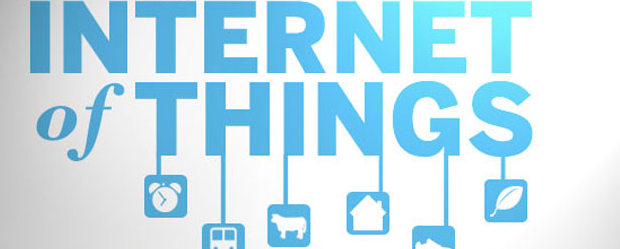Tell people there’s been an accident or a train wreck and they rush to the scene to survey the damage. They will watch for hours and say under their breath, “thank gawd that’s not me.” Hollywood studios and businesses around the globe are watching Sony Entertainment’s virtual business drama unfold as personal and corporate data is released to the embarrassment and concern of everyone in the organization. It’s one of the first major battles of the cyberwar.
The theft of millions of personal records and the loss of hundreds of millions of dollars has done nothing to slow companies rush to put everything in the cloud and online.
The outing of people’s emails and Facebook/LinkedIn posts haven’t slowed individuals from looking like total idiots when their “personal/private” communications and documents have been publicly aired.
If nothing else good comes from the Sony Pictures fiasco, it should reinforce the global recognition for business, institution executives that:
- There is no such thing as privacy on the Internet
- Complete, online security doesn’t make a credible movie script
- Cloud computing/storage security went out the window the minute you went online
- There is no such thing as an offhand, off-the-cuff or sarcastic/cute comment. Everything is public
I’m not concerned about the gory details of the Sony hack or the fact that Hollywood lives in its own triple-standard world.
But it is messy proof that anyone/everyone can be hacked, whacked, ripped off and that business needs more than a little common sense and healthy caution/skepticism when working in the virtual world.
The Internet, Web and Cloud promised us everything; and for the most part, they deliver.
The promises are so good that companies, organizations, regular folks are busy putting themselves up in the cloud because it’s cheap, it’s easy, and it’s cheap.
Cloud Stuffing – Organizations in almost every sector hear the siren call of cloud computing and cloud storage and are implementing or planning their move. Low cost, easy to no recurring expenses and unlimited capacity are pretty hard to resist.
It’s almost irresistible, which is why cloud services hold over a quarter of the world’s business data – personal medical, social media content; financial/corporate documents and business/government data.
The numbers are mind-boggling!
According to IDC, public cloud spending will hit $127 billion by 2018, growing six times faster than conventional tech over the period.
Gigaom Research reports that 53 per cent of large enterprises are either already leveraging public cloud resources for enterprise big data or are planning to.
Only 13 per cent of the Gigaom respondents said they would only use private data centers. Why waste the money?
The numbers for cloud services and big data are staggering.
Cloud people love talking about all of the super fantastic, productivity-leading savings:
- $300 billion a year for the U.S. healthcare industry
- $250 billion for the European public sector
- 60 per cent potential increase in retailers’ operating margins
- $600 billion in economic surplus for services enabled by personal-location data
There are savings under every rock, behind every tree
Half of the world’s 7.7 billion people will be online looking for places to store their stuff–more than 8.6ZB worth. That’s equal to streaming all the movies (about 500,000) and TV shows (3M) ever made over UHD channels (ultra-high def) 250,000 times.
By 2020, the volume of stuff will almost double.
More Data Storage – Everyone is talking the benefits of cloud storage and it’s irresistible–especially when it is free to cheap. It is almost prophetic that the largest percentage of storage will be used by entertainment.
To meet the demand, IDC Sr. VP Frank Gens suggests the number of new cloud-based solutions will increase 10x.
Almost all of those offering the solutions will also be running hell-bent to be the best/cheapest one around so they can get more of your stuff and only lose a little on each transaction.
Battle to the Bottom
Folks who can best afford to play the cheaper card are Amazon, Google, Apple, Microsoft, Facebook and Alibaba.
They’re not only the biggest clouds around; they have the most personal/company data which they can recycle, reprocess, sell/resell.
Of course, there are only a couple of problems with this rosy picture:
- The services (iNet and Web) can’t handle that workload 24×7
- Certain people can’t resist tapping into all of that data that’s up there
- Companies, people put private stuff there and then scream theft when they’re outed
A BT study covering 11 countries reported that more than three-quarters of IT decision-makers are understandably “extremely anxious” about security using cloud-based services.
Yes, But …
Still, 70 per cent of enterprise executives are adopting cloud storage/web apps and it’s doubtful if even the Sony embarrassment will deter them.
Harris Interactive found that 39 per cent of U.S. iNet users use the cloud, saying it “improved the lives of Americans who work.” They also said it was easier to share files, they didn’t have to worry about backing up data and it made their lives more “fun.”
It was so good, so much fun that Juniper Research estimated that 3.6 billion folks will be using it by 2018.
But there’s one little problem.
You have to watch where you step in the cloud.
Squish – You may want to watch where you step when you entrust all of your family/personal photos, videos, important documents and company private/privileged information to the cloud. If you read the Cloud storage agreement, it may not be as safe, secure and available as you think.
It is oh so tempting to hackers, whackers, cyberthieves and there isn’t a privacy, security expert around who says they can keep up with the creatively sneaky little SOBs!
Recently, I saw a special on the Vatican and one of the Pope’s advisors said they communicated using last century’s technology – the fax.
Knowing their business survival depends on privacy/secrecy, Sony Entertainment dusted off their aging fax machines!
And yes relationships were already broken or terribly bruised because of things smart**s people had said to each other in “private” emails.
Penetrating corporate online systems and cloud storage can become the way companies are crippled or even put out of business.
Criminals – While most hackers carry out their activities just to prove they can do it or to cause momentary discomfort, Guardians of Peace, which has taken credit for the Sony Pictures breach, has already cost the company an estimated $100 Millions in lost film revenues and it appears to be only the beginning of their attack on the company. Cyber warfare will ultimately be levied against individual companies around the globe (skirmishes) because “they” can without the need for an attack on an individual country.
The Ponemon Institute found that cybercrime, which was up 10.4 percent this year, included:
- Stealing intellectual property
- Confiscating online bank accounts
- Creating and distributing viruses on other computers
- Posting confidential/private personal business information on the Internet
- Disrupting a country’s critical national infrastructure
The problem is the iNet was never built for security; it was built for information exchange.
Then, people found out they could do other neat stuff like shopping, sharing, posting, tweeting, selfieing.
Finally, companies found it was a cheap, easy way to reach their customers and move huge volumes of data/content around at almost zero cost.
However, the Center for Strategic and International Studies reported global cybercrime will rack up $575 billion this year.
My guess is that because cybercrime is so easy and bad guys/gals are seldom prosecuted, it will far exceed that number unless management comes to grip with how quickly their business can disappear.
And the dollar value of the losses doesn’t even begin to touch the loss of corporate image/corporate equity.
Sony’s hack/distribution wasn’t about setting a few movies free or building buzz around an otherwise really stupid film it was about tearing at the very fabric of the company.
Sony’s Entertainment and PS4/xBox site hacks will become MBA case studies of businesses working and living in the virtual world.
Way Too Good
Organizations wishing to avoid a similar fate should:
- Not let individuals or sites persuade them into giving up private/personal information such as confirming the last four digits of their social security number or corporate passwords
- Doubt that even legitimate companies they trust will send an email requesting financial information. Don’t worry, if it’s real, they’ll get back to you
- Educate everyone that if they receive announcements or visit a site that has poor spelling and grammar (in your native tongue) forget it. Legitimate businesses are more professional
- Know that if they want to be paid by wire transfer or the person needs to get money out of the country or is dying of an incurable disease and wants to unload guilt money, forget it.
- Be aware that if Dr Oz wants to give hints on how to lose weight effortlessly or someone wants to help you empty your intestines, they only want to empty your wallet.
- Change their “rugged” password more often than on New Year’s Day
- Constantly check for OS/app updates (patches) and keep security/malware software up-to-date–and use it.
Hype Cycle – Products, technologies and business practices follow a hype cycle where everyone is wildly enthusiastic about the subject, swearing it will sweep the world, cure major diseases and solve famine everywhere. Then, as time goes by, it becomes less of a miracle until it finally becomes something useful … The Cloud has a ways to go.
According to Gartner, the Cloud is in the trough of their hype cycle and perhaps (hopefully) as Sony’s gory business tale unfolds around the globe, more companies will come to realize that the organization has shrunk to bits and bytes and the reputation that surrounds them.
Online privacy and security will have to be every employee’s job because today’s organizations rely so heavily on their data systems and simply adding more guards and more security personnel won’t be enough.
Sony’s seige has nothing to do with any nation’s pride and try as Hollywood/U.S. government wants to find a single entity at fault it’s difficult to prove when IP (internet protocol) addresses around the globe were used.
But they have already shown they can be wounded without someone even firing a shot.
For them or some other unlucky company the shot could be fatal.
Of course it won’t make for an exciting movie.





